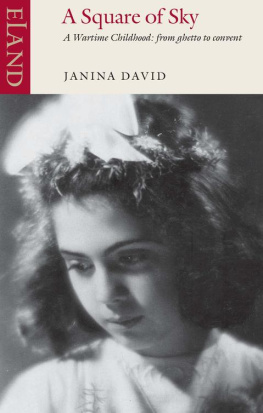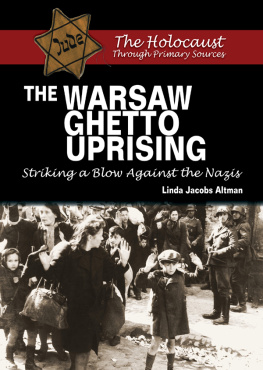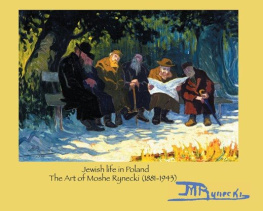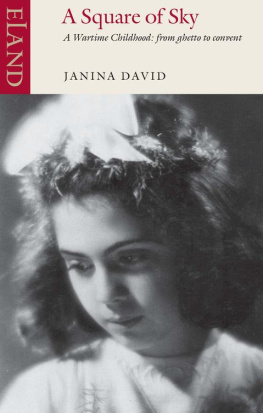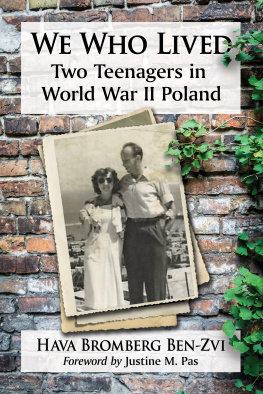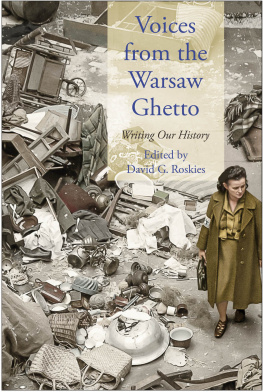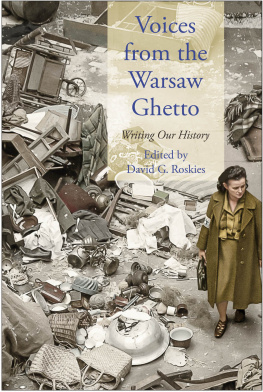T HE SCENT OF ripening apples and pears fills the small room. There is a row of fruit on the windowsill where the sun will put lovely colour on their cheeks. Behind the half-open window the orchard dreams and murmurs, and behind the orchard, watchful and protective, stands the whispering wall of the forest. From every window of the house and from every road outside one can see the dark line of the trees enclosing the village. They come up to the road facing our house: the tall, dark firs and pines, rough and sticky with resin; the solid oaks with shiny, beautifully cut-out leaves, which make the best crowns when we play kings in the forest; and between their gnarled trunks the silver birches dance and sway, princesses and brides in green summer robes which change to a cascade of gold in the early autumn, when holidays come to an end and it is time to devise a happy ending to my summer tales and leave all the heroines in a state of blissful suspension till the next year.
The night air throbs with the singing of frogs, and the village dogs add their sharp comment. A night bird tries out a new song outside my window and inside the room a fly, caught on the strip of sticky paper, buzzes furiously. From the verandah come whispers and smothered giggles. They are all there, impatient and nervous, waiting for Stefa to give the word, waiting to start on another of their nightly expeditions to the orchard.
Stefas voice murmurs: Lets see if she is asleep.
Another voice pleads: Let me come too, and my heart turns over as I recognise Tadek. Quickly I arrange myself on the pillow, spreading my hair in a halo. I pull the sheet up to my chin and fold my hands like the Sleeping Beauty in my book of fairytales. The door creaks. Through half-closed eyes I can see Stefa holding a candle and, behind her, the curly black mop and Tadeks shiny eyes. They peer at me in silence while I hold my breath and smile sweetly to my dreams. The door closes.
She is fast asleep, says Stefa.
She is very pretty, says Tadek simultaneously, and there is a burst of smothered laughter as they all scramble down the verandahs wall and scatter into the orchard. Now they will sing and play the guitar and hide-and-seek among the trees, and sometime in the night Stefa will return with her apron full of half-ripe fruit.
I hear them passing under my window, and soon their voices grow dimmer and mingle with the whispers of trees across the road. I drift after them in a happy dream. It is summer 1939 and I am nine years old.
The village of Crossways, a typical Polish village, consisted of about a hundred farmhouses and summer villas, scattered among the woods. It had a general store-cum-post office, and a couple of guesthouses with a beer-garden on the main road.
After our sudden reversal of fortune two years earlier, when the familys flour mill burned down one summer night, giving the whole town a remarkable pyrotechnic display, Mother decided that we could no longer afford to spend our holidays abroad. As a result, Stefa and I were spending our second summer alone in the two tiny, whitewashed rooms in Crossways. The villa, divided into three small flats, housed besides ourselves another family, consisting of a nurse and two small boys. The third flat was occupied by the two adolescent daughters of the owner of the house Christina, the elder of the two, blonde and blue-eyed, and Janice, who was as dark as myself. To me the fascinating thing about them was that they had two mothers, both alive. But Christinas mother no longer lived in their house. Perhaps she did not like Janices mother who now lived there. The two sisters spent their holidays together in the villa and looked after the comfort of the tenants. Soon after our arrival last summer they were joined by their thirteen-year-old brother, and I chose him for my hero without a moments hesitation. Tadek must have been very short for his age, as he was only a head taller than me. His black curls grew low over his thick eyebrows and fell into his eyes, which, I decided, smouldered with the fire of genius. Dressed in a pair of khaki shorts, the only garment he seemed to possess, suntanned like a coffee bean, he was for me the glorious example of unsupervised existence, for which I sighed enviously. Tadek climbed trees and fences, swam in the frog pond, waded barefoot through the puddles and disappeared for hours, no one knew where. Often he spent the night in a tree or in the tool shed curled among the wood-shavings with the farmers cat.
I tried desperately to follow his example and earn his admiration, but, after a few attempts, was forced to retreat sore and sunburned and bandaged up. I blamed my failure on Stefa and her stifling discipline, which left me no freedom, even on holidays.
The rules which regulated my existence in town were relaxed very little in the country. On hot, dry days I was allowed to run barefoot, and on some evenings I managed to put off bedtime by a few minutes. But my every waking moment was still surveyed by Stefa, who, left alone with me, took her responsibility very seriously.
Meals were taken at set times, and Stefa watched, ready to spoon-feed me if I refused to finish a dish. She still dressed and washed me as if I were a small child and forced me to lie down in the afternoon just when the best games were played. I could hear the shouts and laughter of my friends and see them galloping around, while I lay stiff with fury in my deck chair, in full sunshine to acquire a tan, full of food and resentment and hating the entire world.
The summer days slid past, calm and uneventful. There were no lessons and I re-read my favourite books, lying among the pines. I wrote new poems and stories, went mushrooming with other children and tried to catch frogs around the pond. I collected butterflies and played endless games with the daughters of the caretaker who lived in the wooden barrack in the garden. It had taken me many days to count all the children in that family, and I found it hard to believe that there were actually ten of them. Ten little girls, all alike except for their size. All blonde and blue-eyed, thin and shy. They all somehow fitted into their two rooms at night and spilled out again early each morning squealing, crawling and bouncing, carrying the youngest in their arms.
Mother and Father visited us on Sundays and listened to Stefas report on my behaviour during the week. Mother wanted to know if I had been eating well, and Father always asked if I had been naughty. And every week I trembled as I listened to Stefas account. One could never rely on her discretion.
Once a week the Scouts who camped in the woods built their fire in our grounds and we all sat far into the night around the blazing logs, singing and listening to stories. These nights were a highlight of my summer. Half asleep, but still begging Stefa to let me stay on, I watched the ring of faces around the fire, joined in the choir and followed the curling smoke with my eyes up to the dark blue sky where the stars listened to our song. Around us the forest swayed its thousand arms, the pines nodded and whispered, enclosing our little world in their protective embrace.
Stretched out among the pines on a soft cushion of moss, I contemplated our approaching return home. There were some exciting prospects to consider. Just before leaving town I had seen the new Disney film, Snow White. Our neighbours in the villa had the record of the songs, and I had learnt them all. I also spent the summer playing the main role.
I was a born actress, Stefa affirmed many times, though it did not sound like a compliment.
Leaning over the open well, I watched my image in the still water down below. I could see a branch of the pear tree against the blue circle of the sky and, below the branch, my own face. Just like the film, I thought, and started on the appropriate song. But instead of the Prince it was Stefa who appeared and shooed me away.

